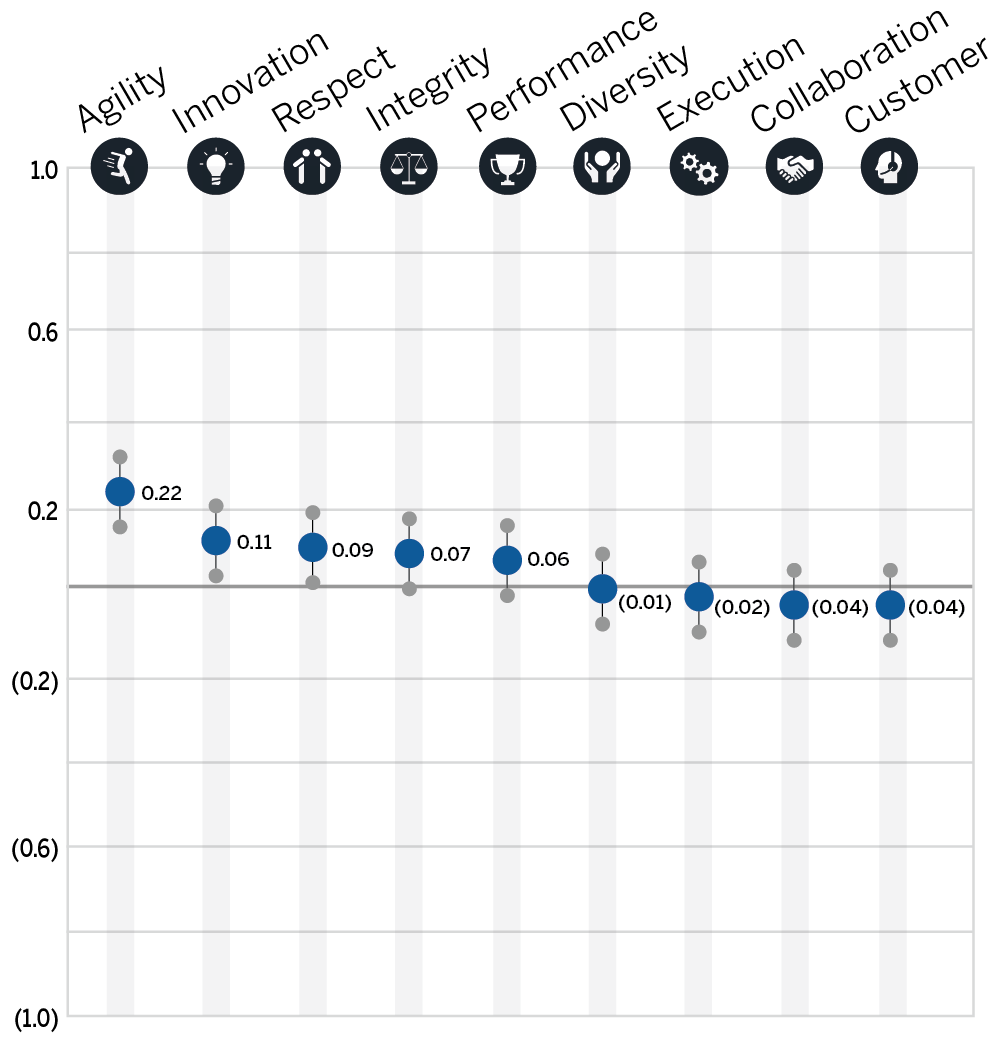In episode 1,
and I got right into the question of why philosophy is valuable for organisations. In our latest episode, we work to express some of the deep value-action gaps (see Sull et al. study below) and contradictions (different forms of ‘self deception’) in the current paradigm of corporatism (including its historicity and founding in what was effectively a pirate military organisation), encouraging an ‘opening of the overton’ as it were (genuine curiosity and ‘safety’ in questioning the unquestioned, deeply valuing the process of moving 'closer to truth’, acting, even if it confronts us, on our new / best understanding of what is and what should probably be, and committing to the process of that living process in service of something far beyond narrow and inherently problematic conceptions of profit that are entirely out of whack with natural processes ‘within’ the earth system etc.).The chart shows the correlation (with 95% confidence intervals) between the values a company emphasizes in its official corporate culture and how well the company lives up to those same values in the eyes of employees. Four of the correlations are negative, and all but one hover near zero. Even agility, with a correlation coefficient of 0.22, reveals a very weak relationship between a company’s public commitment to flexibility and employees’ assessment of how agile the company actually is.
You’ll hopefully note this isn’t a conversation about simply pointing fingers and passing judgements that lack nuance. In fact, the value of corporations is very explicitly acknowledged. Rather, it’s another living demonstration of the process of philosophy-ing on a topic that actually matters to us all.
I hope you join us and consider adding to the questions we will be living throughout this process together.
With love as always.
P.S. Some of the questions we will be exploring in this series:
What do we actually mean by philosophy?
What’s the value of philosophy in organisations?
How is philosophy compared, contrasted or equivocated, relative to other organisational functions?
How can philosophy help organisations interface with genuine uncertainty and complex challenges no organisation has ever faced?
How can diverse ethical theories or lenses help inform decision making within organisations?
How can philosophy help organisations more responsibly and effectively design, develop, and use AI (or not)?
How can philosophy help us better understand the role of trust, and its importance, within organisations (and beyond)?
Beyond profit, how can philosophy help an organisation define its telos? And how can defining this inform strategy and support culture?
How can philosophy enhance an organisations’ capacity to identify and mitigate ‘consequential uncertainty’ (i.e. risk)?
How can philosophy inform authentic progress in boardrooms (how they are comprised, how they collaborate, the ways in which they communicate etc.)?
How can existentialist ideas about meaning, freedom and authenticity apply to ‘employee engagement’, motivation and combatting workplace alienation?
How can a deeper understanding of epistemology improve an organisations approach to data and ‘evidence based’ decision making?
How does one’s philosophy influence their leadership style, and how might this impact (or be impacted by) organisational culture?
What philosophical questions should organisations be asking about the future of work and their role in ‘shaping it’?
Plus so much more (ideally with your contribution, so please let us know what questions you’d like us to explore)




